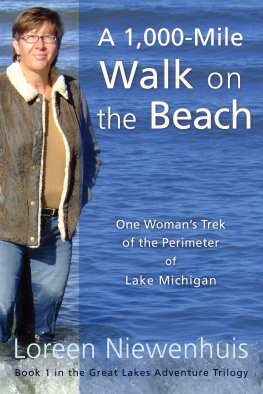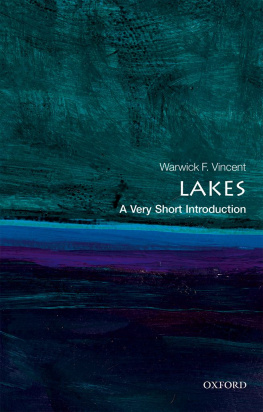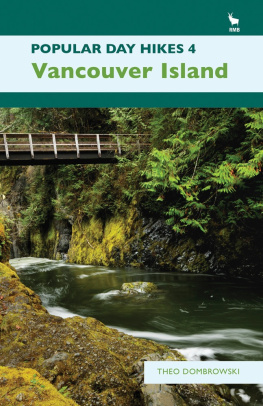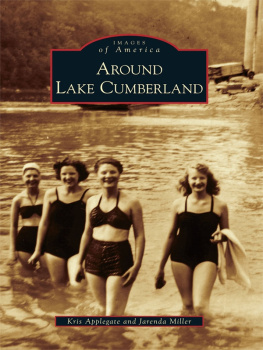Limnology
Lake and River Ecosystems
Third Edition
ROBERT G. WETZEL
ACADEMIC PRESS
Copyright
This book is printed on acid-free paper. 
Copyright 2001, 1983, 1975, Elsevier. All rights reserved.
No part of this publication may be reproduced or transmitted in any form or by any means, electronic or mechanical, including photocopy, recording, or any information storage and retrieval system, without permission in writing from the publisher.
by selecting Customer Support and then Obtaining Permissions.
Academic Press
An Imprint of Elsevier
525 B Street. Suite 1900, San Diego, California 92101-4495, USA
http://www.academicpress.com
Academic Press
32 Jamestown Road, London NW1 7BY, UK
http://www.academicpress.com
Library of Congress Catalog Card Number: 00-110178
ISBN-13: 978-0-12-744760-5
ISBN-10: 0-12-744760-1
PRINTED IN THE UNITED STATES OF AMERICA
11 EB 14
Dedication
To Theodore Jones, who took the time to inspire a fledgling at an early, critical time, and to Carol Ann (n Andre) Wetzel for her unending understanding and support
Preface to the Third Edition
Limnology is currently experiencing a period of introspection. Such criticism is healthy if done constructively and the causes of underlying deficiencies are recognized and addressed. Many problems have arisen, however, in part because of the purported necessity to respond rapidly to governmental and societal demands without an in-depth scientific underpinning. A root cause is our continuing inability to properly educate and train students and the public. Society must recognize that intellectual creativity is essential to excellence in science and that excellence in science is essential to the most effective and cost-efficient management of our resources.
Improvements in science education and training are critically needed. A fundamental requirement of scientific education is to obtain comprehensive background information prior to interpretation and synthesis. One observes an increasing erroneous reliance upon uninformed excuses that old perceptions have little foundation or relevance for modern interpretations. Additional nonsense arguments emerge that too much information exists to integrate. With modern search and organization capabilities, such ignorance of past research is much more than laziness; it represents a deficiency in the teaching of how science is properly conducted. Bibliographic negligence is more than a lack of responsible scholarship because it leads to increasing scientific redundancy and inefficient use of intellectual and financial resources. A result is an increasing tendency to promote old ideas and interpretations under the guise of new and invariably ambiguous buzz word terms. These redundant ideas are actively promoted as inspiration among noncritical peers, science writers, and even granting agency administrators who are unfamiliar with the background development of the subdiscipline. Many contemporary topical reviews are incredibly naive, biased, and incomplete, and parts are simply wrong. Such deficiencies in scholarship must be severely condemned and can be countered by more rigorous preparatory study.
There is an increasing tendency, particularly in the United States, to capitulate to the masses of information on any subject and accept, even promote, superficial understanding of ecological subjects. That level of inquiry may be acceptable for the lay public but is not acceptable for professional limnologists, aquatic ecologists, and water resource managers. A superficial level of understanding is unacceptable in all rigorous disciplines that contemplate systems of equal complexity to natural ecosystems. For example, the great strides made in human medicine are the direct result of concerted, systematic evaluation and rigorous experimental investigations of the mechanisms controlling human and pathogen physiology.
In ecology, as in many other disciplines, the cop out deference strategy to the information glut is increasingly to specialize in a small area and to then aggregate teams of specialists to attempt to understand how all of the pieces fit and operate together. The present emphasis on interdisciplinary studies is little more than an expansion of the identical process that has been carried on for decades by competent ecosystem scientists. Emphasis, particularly by nonscientist administrators, on forced collaboration, regardless of expertise, either directly or by fiscal coercion is an increasing problem. Such realities of collaborations reinforce the need for participants to be versed on some comprehensive introductory understanding of the whole.
I argue that one cannot manage aquatic ecosystems effectively without understanding how they operate in response to interactions of physical, chemical, and biotic environmental variables. This insistence is analogous to the statement that one cannot effectively manage human health without understanding human physiological and biochemical interactions with environmental variables. Superficial or biased training in limnology can only lead to superficial and biased understanding. There is a need for rigorous limnological training, even at the introductory level. The U.S. National Academy of Sciences (1996) also emphasized that need in the recent thorough evaluation of limnological education.
The first edition of this book, initiated in the early 1970s, resulted from my frustration with the available texts at the time, which, at best, offered interesting but superficial analyses of inland aquatic ecosystems. The initial edition, issued in 1975, was well received as an alternative. The second edition, published in 1983, represented an extensive updating with new findings, appreciable reorganization, and clarifications based on experience in my own classes and constructive inputs from many students and colleagues. Again the book was well received; it has been widely cited as a source work (e.g., ISI Citation Classic) and has been translated into several other languages.
Since the appearance of these editions, a number of other general treatments of limnology have appeared in English, French, German, Spanish, Portuguese, and other languages. Essentially all of these works are directed at providing general overviews of the subject, and some accomplish this objective very well. Some of these books are simple but interesting overviews of the subject that can be assimilated in a long evening of reading, whereas others are more involved and clearly are intended to accompany instructional programs in initial introductory courses in limnology.
Such general books introduce students at college and university levels to the fascinating subject of inland aquatic ecology. These accomplishments assist in fulfilling an enormously important responsibility of educators: the general public, particularly those obtaining higher education, should be aware of the magnitude, general operation, and management problems of inland waters upon which so much of their well-being depends. The information presented in these works need not include details underlying certain basics of the operation and should be presented in an interesting, scientifically correct manner.
There are different levels of training in any subject. The gap is large between general texts suitable for the general public and nonspecialist students and detailed research-level treatments, such as G. E. Hutchinsons four-volume A Treatise on Limnology. Somewhere in between is the need for a more derailed introductory instructional text for students interested in becoming professionals in this discipline and desiring greater depth of inquiry and understanding. For nearly a decade, among other responsibilities, I have been revising this general limnology text for a third edition for this introductory instructional objective.
Next page








